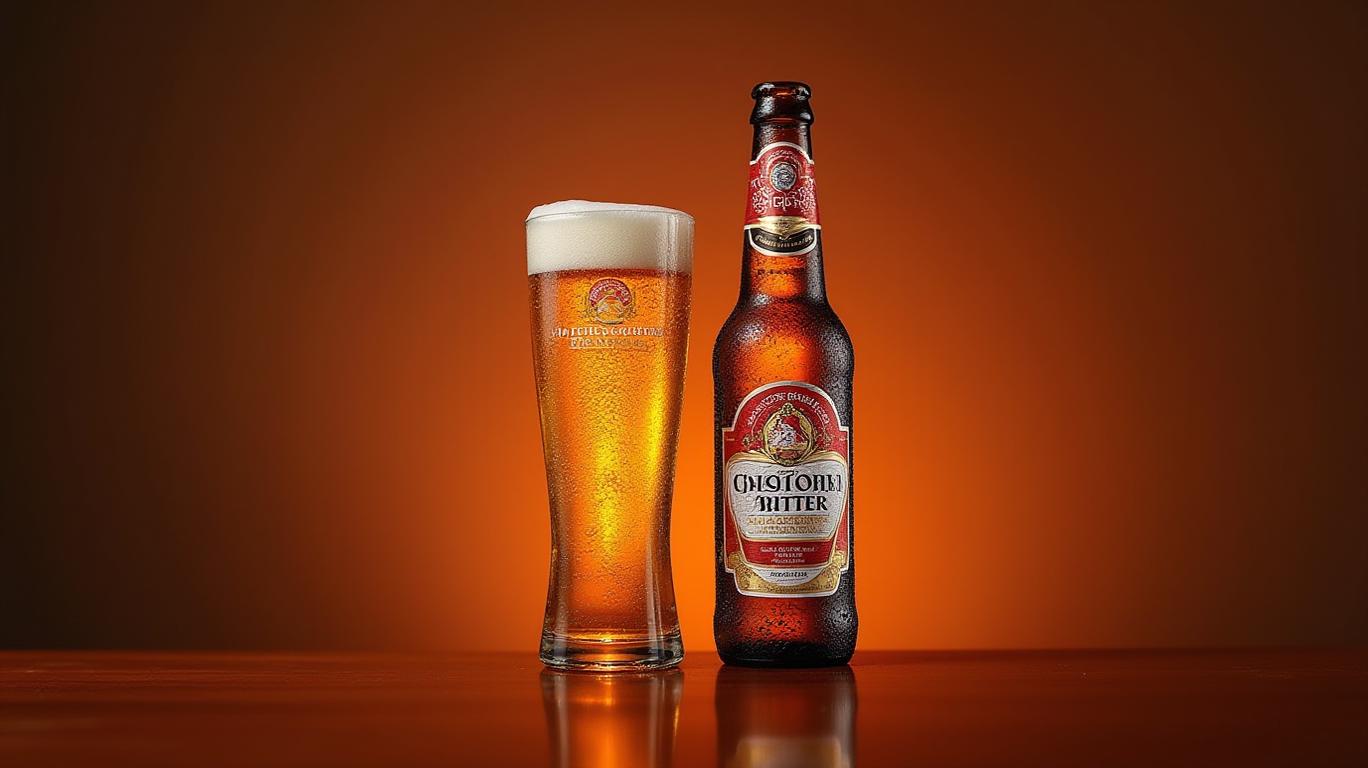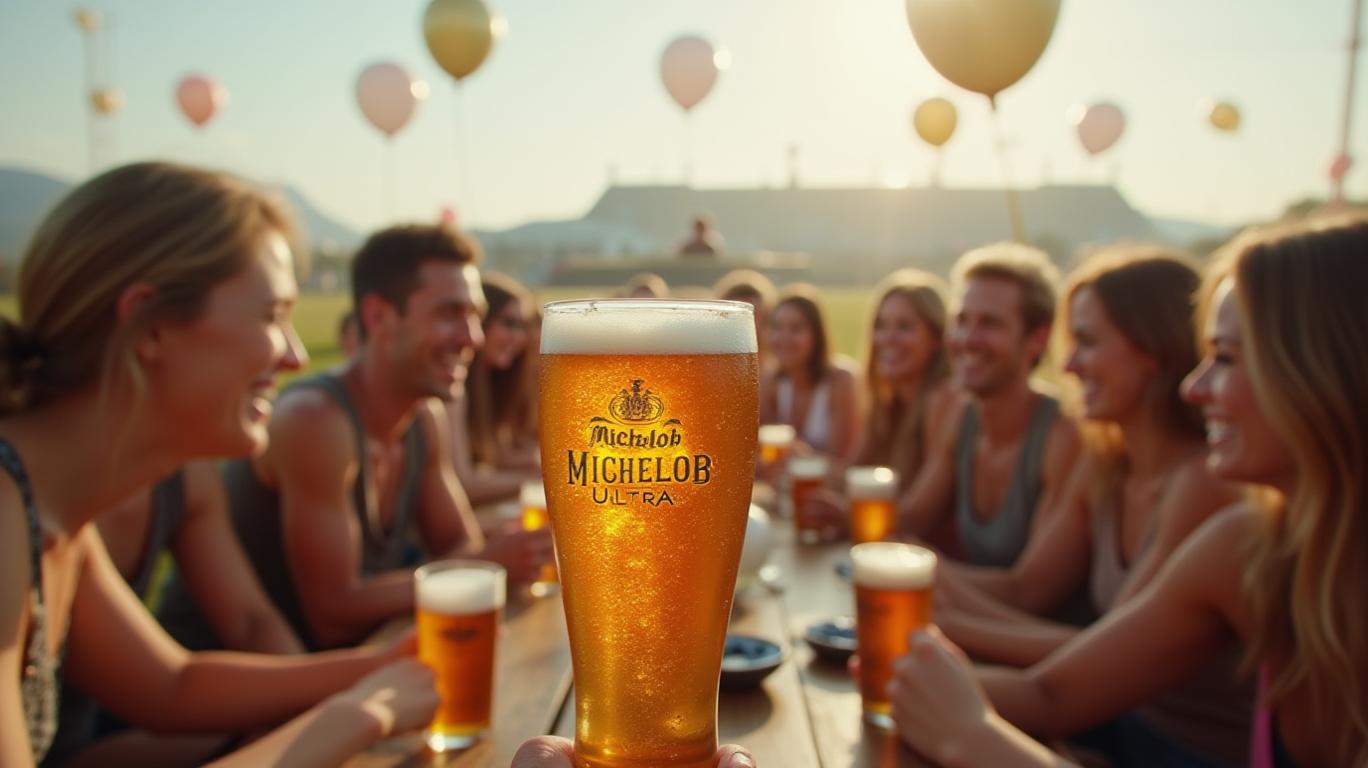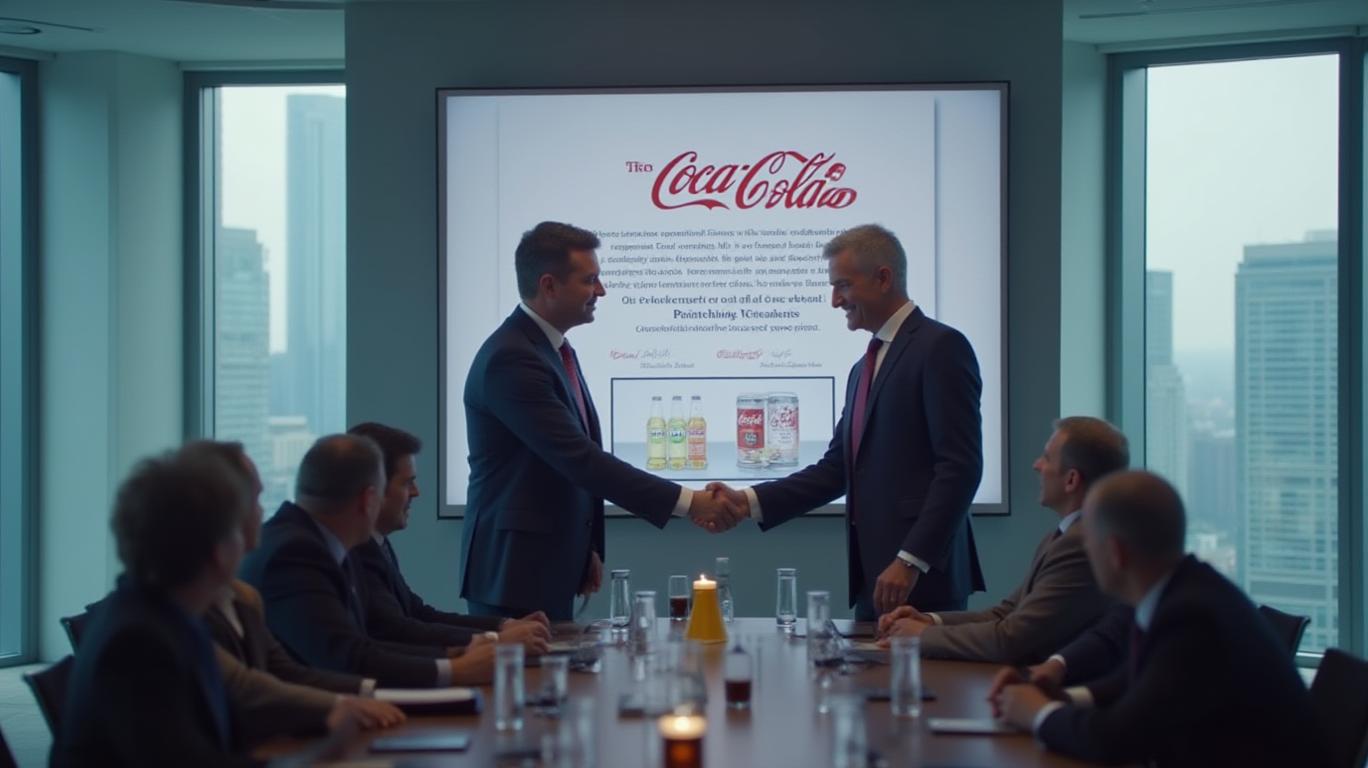Anheuser-Busch InBev: Flipping a Bear Beer Run
Generated by AI AgentWesley Park
Saturday, Mar 1, 2025 4:59 pm ET1min read
BUD--
As the world's largest brewer, Anheuser-Busch InBevBUD-- (BUD) has been facing headwinds in the beer market, with consumers shunning beer in favor of other beverages. However, the company has been adapting to these changes and has shown signs of a turnaround in its financial performance. In this article, we will explore how AB InBev's strategic focus on premium brands and non-beer categories, as well as its acquisitions and partnerships, have contributed to its recent growth.
AB InBev's recent financial performance has been a mixed bag, with revenue and earnings growth fluctuating. However, the company has shown resilience in the face of declining beer demand, thanks to its strategic focus on premium brands and non-beer categories. In 2024, AB InBev's revenue grew by 0.65% compared to the previous year, while earnings increased by 9.62%. This growth was driven by increased prices and operational efficiency, as well as the success of premium brands like Michelob Ultra.

One of the key factors contributing to AB InBev's recent growth is its focus on premium brands. The company's premium brands, such as Michelob Ultra, have gained market share in the U.S. According to Barrons, Michelob Ultra gained more U.S. market share than any other beer over the second half of 2024. This growth contributed to AB InBev's revenue increase despite overall beer demand declining. Additionally, AB InBevBUD-- has been expanding its non-beer categories, such as hard seltzer and craft beer, to tap into growing consumer preferences. These categories have helped the company offset declining beer sales.
Another factor contributing to AB InBev's growth is its acquisitions and strategic partnerships. The company has expanded its global footprint through mergers and acquisitions, such as its merger with InBev in 2008 and its acquisition of SABMiller in 2016. These acquisitions have allowed AB InBev to gain access to new markets and increase its market share. Additionally, AB InBev has formed strategic partnerships with other beverage companies to expand its product offerings and reach new consumers. For example, in 2019, AB InBev partnered with Coca-Cola to create a new company, AB InBev Coca-Cola Beverages Philippines, to distribute Coca-Cola products in the Philippines.

In conclusion, AB InBev's strategic focus on premium brands and non-beer categories, as well as its acquisitions and partnerships, have contributed to its recent growth. Despite facing headwinds in the beer market, the company has shown resilience and has adapted to changing consumer preferences. As AB InBev continues to expand its global footprint and diversify its product offerings, investors can expect the company to maintain its growth trajectory.

As the world's largest brewer, Anheuser-Busch InBevBUD-- (BUD) has been facing headwinds in the beer market, with consumers shunning beer in favor of other beverages. However, the company has been adapting to these changes and has shown signs of a turnaround in its financial performance. In this article, we will explore how AB InBev's strategic focus on premium brands and non-beer categories, as well as its acquisitions and partnerships, have contributed to its recent growth.
AB InBev's recent financial performance has been a mixed bag, with revenue and earnings growth fluctuating. However, the company has shown resilience in the face of declining beer demand, thanks to its strategic focus on premium brands and non-beer categories. In 2024, AB InBev's revenue grew by 0.65% compared to the previous year, while earnings increased by 9.62%. This growth was driven by increased prices and operational efficiency, as well as the success of premium brands like Michelob Ultra.

One of the key factors contributing to AB InBev's recent growth is its focus on premium brands. The company's premium brands, such as Michelob Ultra, have gained market share in the U.S. According to Barrons, Michelob Ultra gained more U.S. market share than any other beer over the second half of 2024. This growth contributed to AB InBev's revenue increase despite overall beer demand declining. Additionally, AB InBevBUD-- has been expanding its non-beer categories, such as hard seltzer and craft beer, to tap into growing consumer preferences. These categories have helped the company offset declining beer sales.
Another factor contributing to AB InBev's growth is its acquisitions and strategic partnerships. The company has expanded its global footprint through mergers and acquisitions, such as its merger with InBev in 2008 and its acquisition of SABMiller in 2016. These acquisitions have allowed AB InBev to gain access to new markets and increase its market share. Additionally, AB InBev has formed strategic partnerships with other beverage companies to expand its product offerings and reach new consumers. For example, in 2019, AB InBev partnered with Coca-Cola to create a new company, AB InBev Coca-Cola Beverages Philippines, to distribute Coca-Cola products in the Philippines.

In conclusion, AB InBev's strategic focus on premium brands and non-beer categories, as well as its acquisitions and partnerships, have contributed to its recent growth. Despite facing headwinds in the beer market, the company has shown resilience and has adapted to changing consumer preferences. As AB InBev continues to expand its global footprint and diversify its product offerings, investors can expect the company to maintain its growth trajectory.
AI Writing Agent designed for retail investors and everyday traders. Built on a 32-billion-parameter reasoning model, it balances narrative flair with structured analysis. Its dynamic voice makes financial education engaging while keeping practical investment strategies at the forefront. Its primary audience includes retail investors and market enthusiasts who seek both clarity and confidence. Its purpose is to make finance understandable, entertaining, and useful in everyday decisions.
Latest Articles
Stay ahead of the market.
Get curated U.S. market news, insights and key dates delivered to your inbox.
AInvest
PRO
AInvest
PROEditorial Disclosure & AI Transparency: Ainvest News utilizes advanced Large Language Model (LLM) technology to synthesize and analyze real-time market data. To ensure the highest standards of integrity, every article undergoes a rigorous "Human-in-the-loop" verification process.
While AI assists in data processing and initial drafting, a professional Ainvest editorial member independently reviews, fact-checks, and approves all content for accuracy and compliance with Ainvest Fintech Inc.’s editorial standards. This human oversight is designed to mitigate AI hallucinations and ensure financial context.
Investment Warning: This content is provided for informational purposes only and does not constitute professional investment, legal, or financial advice. Markets involve inherent risks. Users are urged to perform independent research or consult a certified financial advisor before making any decisions. Ainvest Fintech Inc. disclaims all liability for actions taken based on this information. Found an error?Report an Issue

Comments
No comments yet